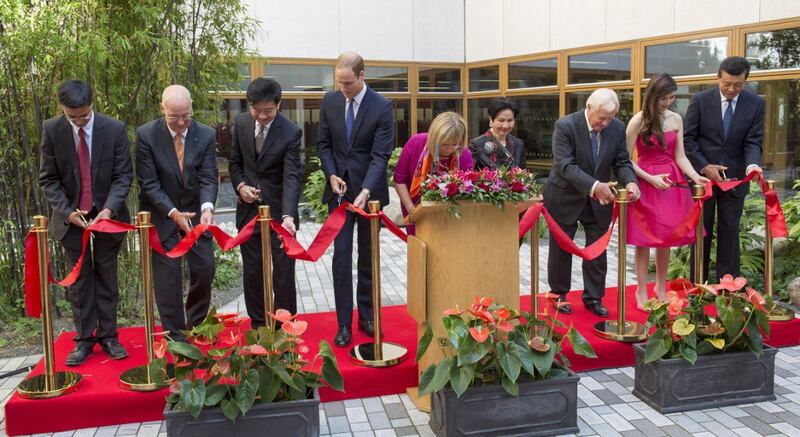A top business school at the University of Cambridge has close ties with Chinese technology giant Huawei, with three out of five board members linked with the company, a U.K. newspaper reported on Monday.
Three out of four directors at the Cambridge Centre for Chinese Management (CCCM) have ties with Huawei, while its chief representative is a former Huawei senior vice president paid by the Chinese government, the Times newspaper reported on Monday.
Johnny Patterson, policy director of the U.K.-based rights group Hong Kong Watch called on the university to examine Huawei’s relationship with the CCCM, the report said.
The paper quoted former Conservative Party leader Ian Duncan Smith as saying that Cambridge was "one of the worst offenders" when it came to reliance on Chinese funding.
Duncan Smith said companies and universities in the U.K. had grown "far too dependent" on money from China.
"The government needs to urgently set up an inquiry into the UK’s dependency on China across a range of institutions and companies," the Times quoted him as saying.
The CCCM is part of Cambridge University's Judge Business School, and calls itself "an academic research institute dedicated to the study of the management practices and strategies of Chinese enterprises."
A cached version of its website described former Huawei senior vice president Hu Yanping as its chief representative in China.

UK ban on Huawei 5G
But the CCCM denied to the Times that Hu Yanping had provided any professional services, and his profile was deleted from its website soon after the article appeared.
CCCM director Peter Williamson was cited in an article on the website of China's state-run CCTV in January arguing against Huawei's exclusion from 5G in the U.K.
"Huawei's technology is already deeply embedded in the global standards that underpin 5G," the article quoted Williamson as saying. "The costs to the U.K. of excluding Huawei would be huge and complete exclusion is virtually impossible."
Nonetheless, by July 2020, the U.K. said it was banning Huawei from its 5G telecom network, a move that came after the Trump administration argued that the company is a threat to national security, and amid an investigation by U.S. prosecutors into its alleged theft of trade secrets and obstruction of justice.
British telecom operators were given until 2027 to remove existing Huawei equipment from their 5G networks in changes likely to delay the country's 5G rollout by a year.
Around the same time, researchers in Australia were sounding the alarm about the Chinese Communist Party (CCP)'s global network of influence operating via the United Front, a network of party and government-linked agencies and companies.
The researchers said the United Front had extended its influence into foreign political parties, diaspora communities and multinational corporations, and represents an explicit bid to export China's political system around the world.
Zhang Yu, secretary-general of the Independent Chinese PEN writers' group, said European countries appear to take the threat of CCP infiltration less seriously than some of their global allies.
"In Europe in particularly we have seen a rather weak response to the threat posed by Huawei's expansion," Zhang said. "The West should pay attention, because this should be banned."
Closely aligned with Beijing
U.K. scholar Wang Jianhong said there is no doubt that Huawei is closely aligned with the Chinese government.
"Huawei is part of the Chinese government, and its engagement in technology theft, the suppression of human rights and digital surveillance is inexcusable," Wang said. "
"This funding and infiltration of one of its research institutes by Huawei is a fatal blow to Cambridge University's reputation as a world-class elite institution," he said.
"This should be an alarm bell, and should act as a warning of the extent to which academic freedom has been compromised," Wang said.
Zhang agreed, saying that Huawei's involvement at Cambridge University was "terrifying."
"Some universities in the U.K. are cooperating with Huawei in the name of academic freedom and independence, but with complete disregard for national security," he said.
According to Zhang, at least 35 British universities have maintained ties with the company, and Huawei's claim to be a private company was a fiction under the CCP.
"There are no large Chinese companies that are not controlled by the state," Zhang said. "This sort of cooperation serves a broader political purpose, which is to help China."
Translated and edited by Luisetta Mudie.
